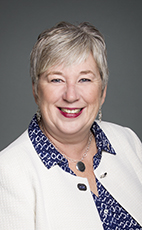Madam Chair, I have already met with a number of first nations chiefs in Manitoba. We will continue to have those ongoing discussions. Reconciliation is extremely important to the government, and we know there is a lot to be done.
With regard to the Freshwater Fish Marketing Corporation, this is one of the issues we have spoken about. We will continue to have those discussions. We know it is important for indigenous communities to market their fish. We will continue to work with them to make sure we find the best path forward.

